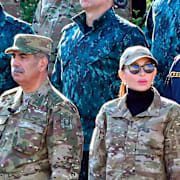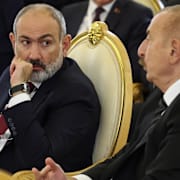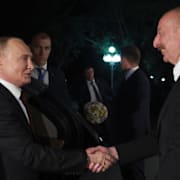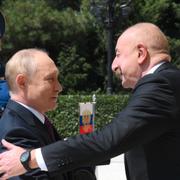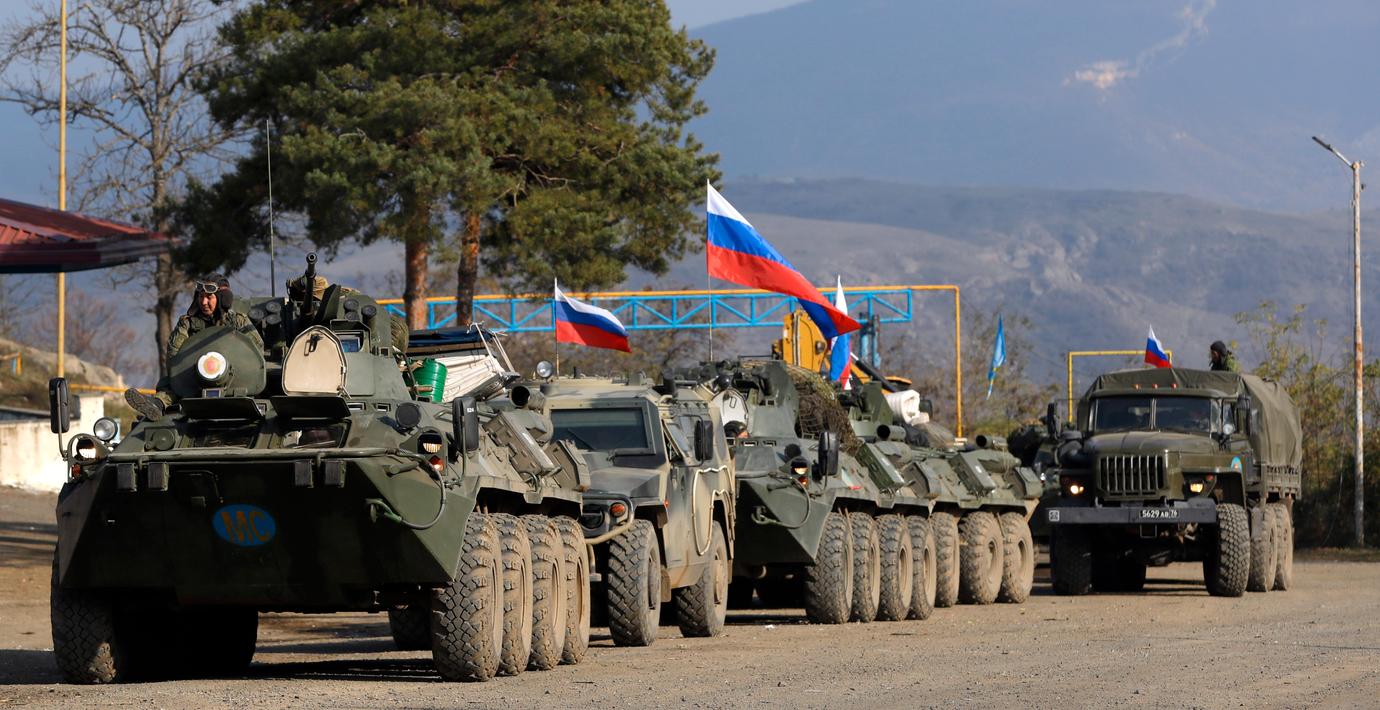
Växande spänningar mellan Ryssland och Armenien
På fredagen kallade Kreml till sig Armeniens ambassadör för att markera mot vad ryska UD kallar ”en rad ovänliga handlingar” från armeniskt håll de senaste dagarna, rapporterar AFP.
Bland annat angavs de gemensamma militärövningar Armenien hållit med USA, premiärministerhustruns resa till Kyiv och landets steg mot att ansluta sig till Internationella brottmålsdomstolen, som utfärdat en arresteringsorder mot Putin.
De båda länderna är allierade, men Armenien har blivit allt mer kritiskt mot de ryska fredsbevarande styrkornas hantering av konflikten i Nagorno-Karabach. Under sommaren har det larmats om hungersnöd och ”ett nytt folkmord mot armenier” i regionen, där Azerbajdzjan infört en blockad.
bakgrund
Konflikten i Nagorno-Karabach
Wikipedia (en)
The Nagorno-Karabakh conflict is an ethnic and territorial conflict between Armenia and Azerbaijan over the disputed region of Nagorno-Karabakh, inhabited mostly by ethnic Armenians, and seven surrounding districts, inhabited mostly by Azerbaijanis until their expulsion during the 1990s. The Nagorno-Karabakh region is entirely claimed by and partially de facto controlled by the breakaway Republic of Artsakh, but is recognized internationally as part of Azerbaijan. Azerbaijan controls the remainder of the Nagorno-Karabakh region as well as the seven surrounding districts.
The conflict has its origins in the early 20th century, but the present conflict began in 1988, when the Karabakh Armenians demanded the transfer of the region from Soviet Azerbaijan to Soviet Armenia. The conflict escalated into a full-scale war in the early 1990s following the dissolution of the Soviet Union. The First Nagorno-Karabakh War led to tens of thousands of casualties. The war was won by Armenia, which subsequently occupied regions around Soviet-era Nagorno-Karabakh. Ethnic Azerbaijanis were expelled from the Armenian-controlled areas, while ethnic Armenians were expelled from Azerbaijan. The ceasefire ending the first war, signed in 1994 in Bishkek, was followed by two decades of relative stability, which significantly deteriorated in the 2010s. A four-day escalation in April 2016 resulted in hundreds of casualties but only minor changes to the front line.
In late 2020, the large-scale Second Nagorno-Karabakh War resulted in thousands of casualties and a significant Azerbaijani victory. An armistice was established by a tripartite ceasefire agreement on November 10, resulting in Azerbaijan regaining all of the occupied territories surrounding Nagorno-Karabakh as well as capturing one-third of Nagorno-Karabakh itself. Ceasefire violations in Nagorno-Karabakh and on the Armenian-Azerbaijani border have continued following the 2020 war, with intermittent but ongoing casualties.
Since the 2020 Nagorno-Karabakh War, Azerbaijan has rescinded its offer of special status or autonomy to its indigenous Armenian residents and instead insists on their "integration" into Azerbaijan. International mediators and human rights organizations emphasize self-determination for the local Armenian population and do not believe that Artsakh Armenians can live safely under the regime of Azerbaijani President Aliyev. Since December 2022, Azerbaijan has blockaded the Republic of Artsakh from the outside world, in violation of the 2020 ceasefire agreement and international legal rulings.
Omni är politiskt obundna och oberoende. Vi strävar efter att ge fler perspektiv på nyheterna. Har du frågor eller synpunkter kring vår rapportering? Kontakta redaktionen
